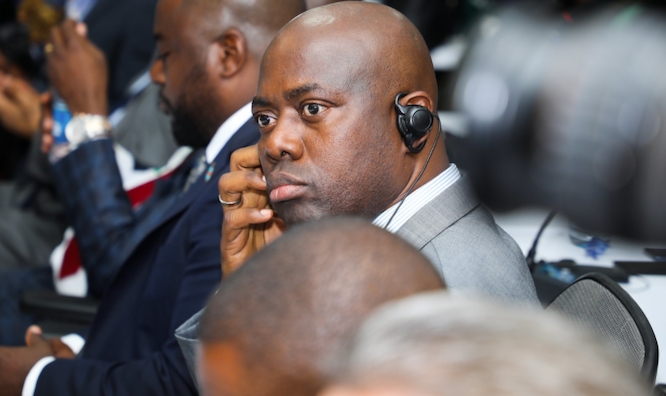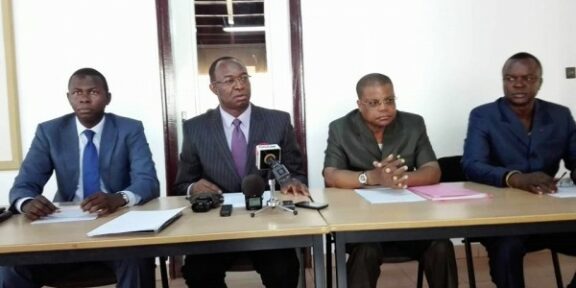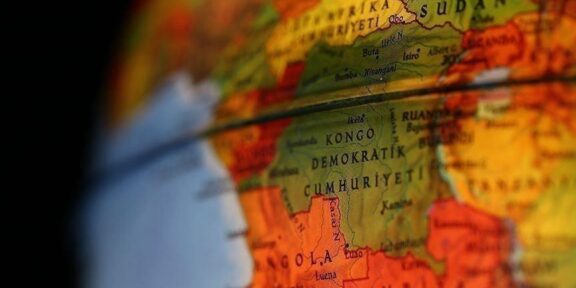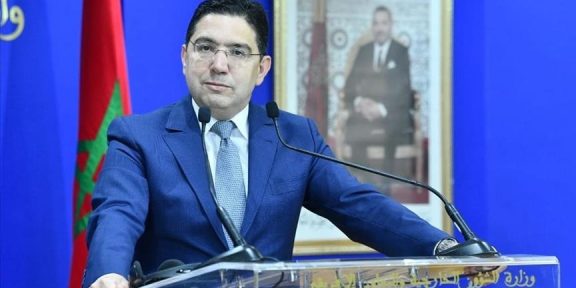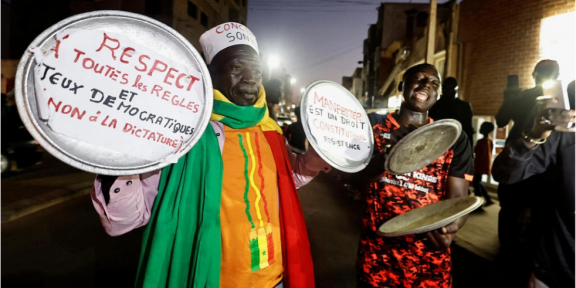The PDP is in a bind; it has a powerful northern candidate in Atiku, but an election where the candidate is expected to come from the South. While they have a potential winner in the shape of Oyo State Governor Seyi Makinde, the ruling APC is trying to lure him across to their camp.
At a recent meeting of the Peoples Democratic Party (PDP) held in Abuja on 10 March, the major agenda item was how the party could retake the presidency from the incumbent All Progressives Congress (APC).
Although the next round of elections is not due until February 2023, Nigeria’s largest opposition party is not taking any chances to go to the poll with a divided house and below-par strategy, to two persons who were at the meeting told The Africa Report.
Even with Nigeria’s multi-party system, power has only shifted once since the end of military rule: in 2015 the APC beat the PDP when ex-President Goodluck Jonathan became the first incumbent president to lose a reelection bid.
With the APC now in its sixth year, President Muhammadu Buhari’s administration has lost popularity, and the party’s chances of retaining the presidential seat are believed to be growing slimmer as the election approaches – especially given the APC rode to power on the promises of diversifying the economy, securing the country and fighting corruption.
Nigeria’s statistics agency puts the country’s unemployment rate at 33.3%. Schoolchildren are being abducted every other week, with four attacks so far on schools this year. Growth has collapsed, and both the private sector and foreign investors lament the difficulty of doing business. Added to the explosive political discontent witnessed throughout the #EndSARS movement, it adds up to a steep climb for the ruling party in 2023.
The Makinde option
Local media reports – and the hyperactive Abuja grapevine – suggest Governor Seyi Makinde of Oyo State is one of the favoured politicians to take a shot at the presidency with a PDP ticket. Although he is seen as a newcomer in Nigeria’s corridors of power, with his position in Oyo being his first major political office, the goodwill he enjoys could work in favour of the PDP.
“Our people love accountability so much. So when they saw somebody practising it and not just saying it, that immediately caught the admiration of a lot of people even beyond Oyo,” says Taiwo Adisa, Makinde’s Chief Press Secretary.
An electrical engineer by profession, Makinde had been actively involved in the private sector including at Makon Group Limited Limited where he worked as the Group Managing Director before resigning in 2018.
Makinde’s first shot at an elective political office was in 2007 when he lost his bid to represent Oyo south at the senate. He lost when he tried again in 2011 and, later in 2015, when he succumbed to yet another defeat – this time while seeking the PDP governorship ticket – before his eventual victory in 2019.
“I was drawn to politics because I saw the way the wealth meant for everyone was being siphoned by a few to enrich themselves while leaving the masses in desperate poverty and dehumanising suffering, and our land in ruin,” he had said in his inaugural address as governor.
His support stems from grassroots projects like scrapping educational charges for senior secondary school students which reportedly increased school enrolments by 11.3% within his first year in office, strengthening primary healthcare delivery through a community-based health insurance scheme and increasing the state’s internally generated revenue by 26% in the first half of 2020 through projects boosting its economy.
Unsurprisingly, the 53 year-old Governor has become popular with the youth; a vote increasingly powerful in Nigeria, where half the registered voters are between 18-35 years old.
Sweeping Makinde off the PDP’s umbrella
Although he has not declared interest to run for any political office after the end of his first term as governor, Makinde has attracted interest from the PDP. In the last couple of months, the ruling party was said to have made at least three attempts to get Makinde to join them, a source close to the governor told The Africa Report.
One of such moves, the source said, is being spearheaded by Governor Kayode Fayemi of Ekiti State who is the chairman of the Nigeria Governors’ Forum (NGF).
“They both met in Abuja during which Fayemi discussed the possibility of him joining the APC and Makinde jokingly asked if they were going to hand over the party structure to him,” he said, adding that Fayemi “told him to register (as an APC member) first.”
The registration is over but the APC’s desire to take over Oyo, the lone PDP state in the south-west, is not over. Moreso, the PDP is at greater risk of losing Makinde with the running battle between him and Ayodele Fayose, former governor of Ekiti state, over who stays in charge of the party’s structure in the region.
The supremacy battle between the duo was believed to have started in September 2020 after Fayose openly attacked the governor, accusing him of interfering in the leadership of the party in Ekiti and other south-west states. While Makinde wants to stay in control of the PDP across the states, party leaders who associated with Fayose at one time or the other were suspended in Lagos and Ondo.
Two plans for 2023
Amid the fight with Fayose who once described him as a “baby governor”, Makinde is not ruling out the APC from his political moves, one of those that are privy to his plans said.
“He has two plans: The first is to use the African Democratic Congress (ADC) which he had forged an alliance with (in 2019), for a second term bid. So, for the local government elections that are coming, he plans to give them some slots — chairmanship of the local council development authority, so that it will be like a foundation for (him in) 2023,” one of the sources said.
The second option is to dump the party (PDP) for APC; the party has been speaking to him. Immediately he crosses to APC, he becomes the party’s flag bearer automatically.”
The PDP, however, insisted that no such thing would happen. After its governors including Makinde met in Abuja last week, they issued a statement saying none of them is “contemplating leaving the party” and that the defection claims are attempts “to sow seed[s] of disunity in the party.”
Kola Ologbondiyan, the PDP spokesman, said during a phone interview that the party is concentrating on bringing its house together under one roof, a task being led by former Senate President and two-time governor Bukola Saraki.
“The reconciliation is going well across the country. The communique of the governors’ forum stated clearly and abundantly that none of them is going to the APC and nothing like that will happen,” he said.
Adisa also denied claims his principal could leave the PDP, wondering, “he is not contending with anybody for the leadership of the PDP in the state, so how do you leave that kind of place for nothing?”
“The priority of the governor is the four-year tenure he has been given by the people of Oyo state and not a second term or anything like that. He just wants to do well within the time he has been given,” the chief press secretary added.
PDP’s dilemma; Atiku or bust?
In Nigeria, political offices — especially the presidency — are rotated on the basis of geographical zones as part of a zoning formula. The unwritten rule has been in place since 1999, from the time of Olusegun Obasanjo up till the administration of Buhari who is from Katsina state.
In the buildup of the 2019 elections the PDP zoned its ticket to the north as early as May 2016. While it is widely believed that the party’s flagbearer in the 2023 election would be from the south, some believe its hesitancy in announcing this could be related to the power dynamics ongoing in the party.
A source at the PDP national secretariat said among those being considered to clinch the party’s presidential ticket is former Vice-President Atiku Abubakar, who has contested for the Aso Rock seat five times.
According to the source, “the PDP will look the way of the north (because) the biggest person that has supporters that cut across the country is Atiku. A presidential election is a very big game and you must present somebody who has friends across. ”
By contrast, Makinde’s support for a presidential run could only go as far as the boundaries of the south-west and he does not have enough goodwill to carry him across the six regions, unlike Buhari who, by his fourth attempt in 2015, was running for president helped by friends in every state.
Another bigwig being considered is the Governor of Sokoto State Aminu Tambuwal who is believed to enjoy widespread support since leaving office as the speaker of the House of Representatives in 2015.
“For Tambuwal, what he has is that he appointed many of his colleagues when he was in the House of Representatives as aides. So, those people can also go to their various zones and states to mobilise for him,” the source said.
Although Ologbondiyan is not ruling out the possibility of the PDP not zoning its presidential ticket to the south, he said the party has “a process of doing things.”
“We are a very procedural political party and not owned by one or two individuals,” he said, in an apparent reference to the APC whose affairs are largely dictated by Bola Tinubu, its national leader. “At the fullness of time, the PDP will decide where it will go in respect of zoning.”
Source: The Africa Report

